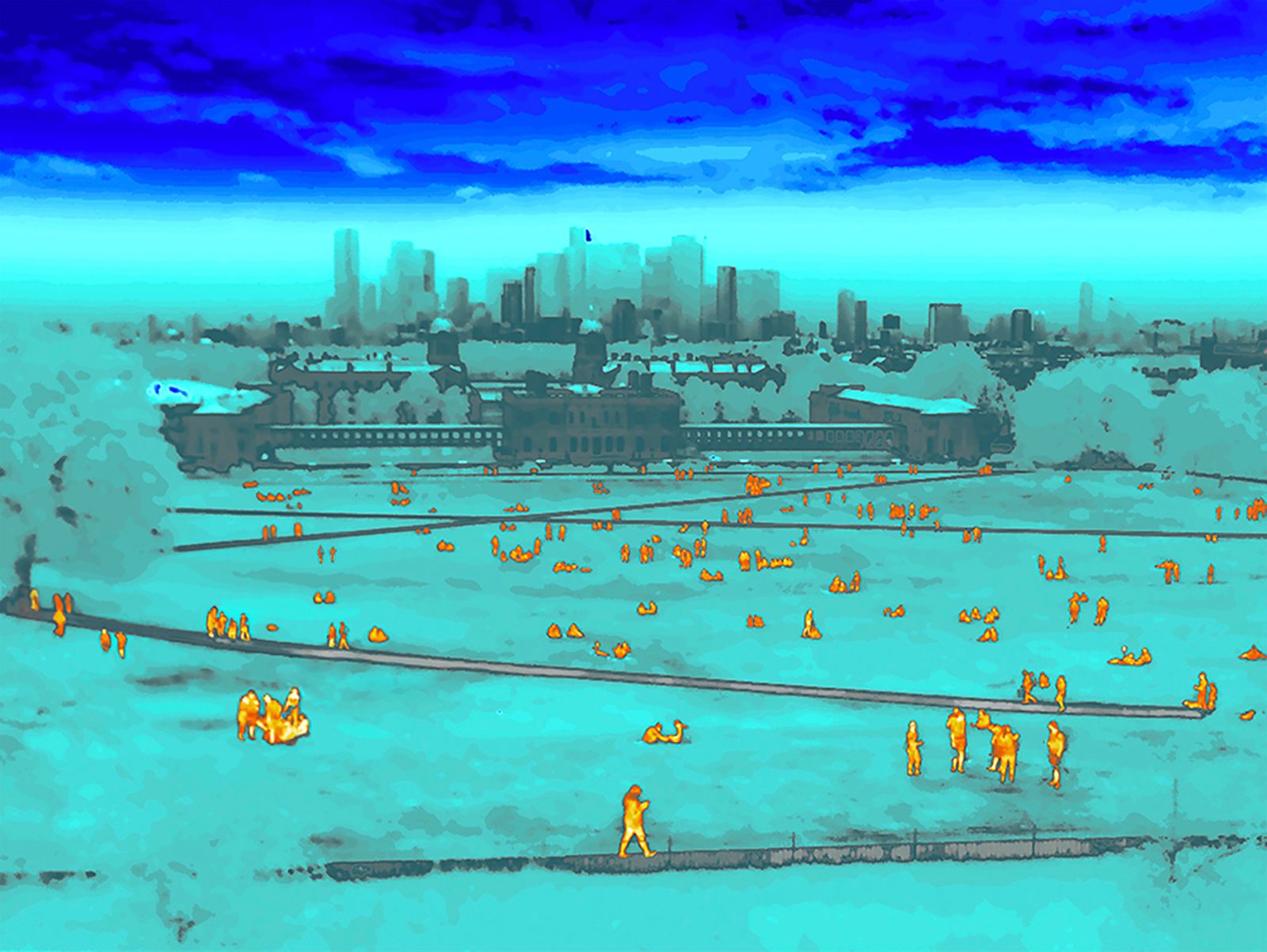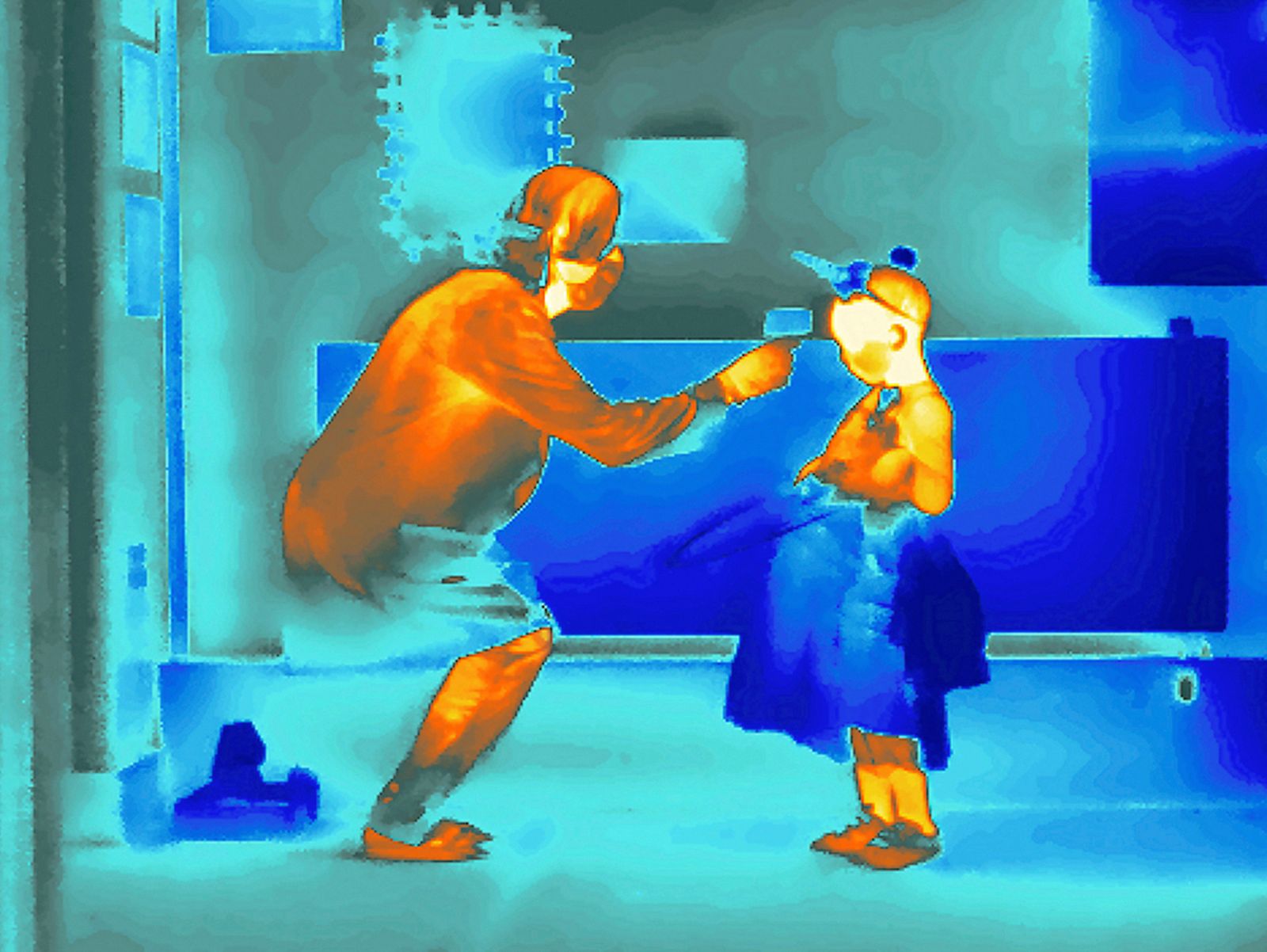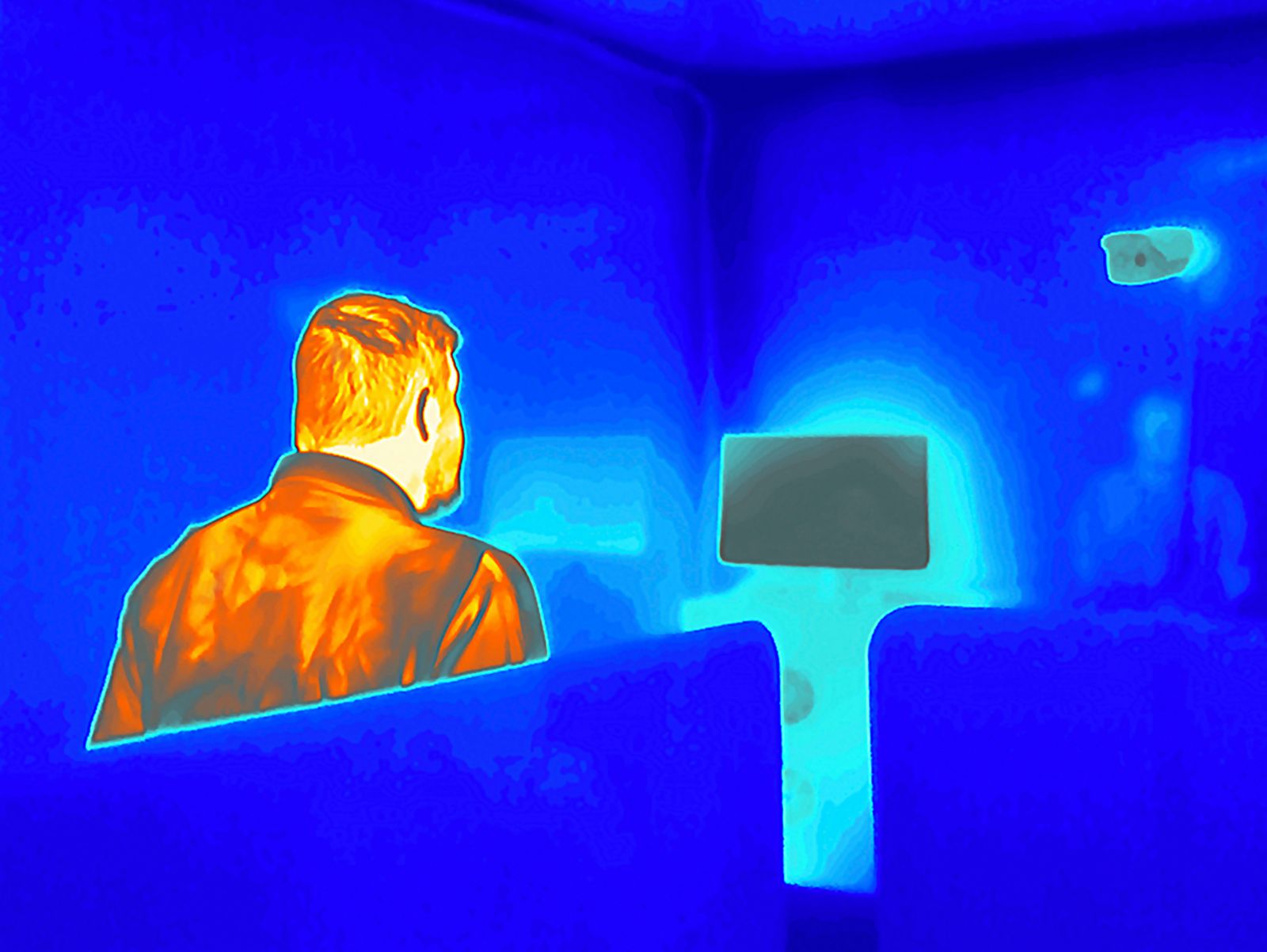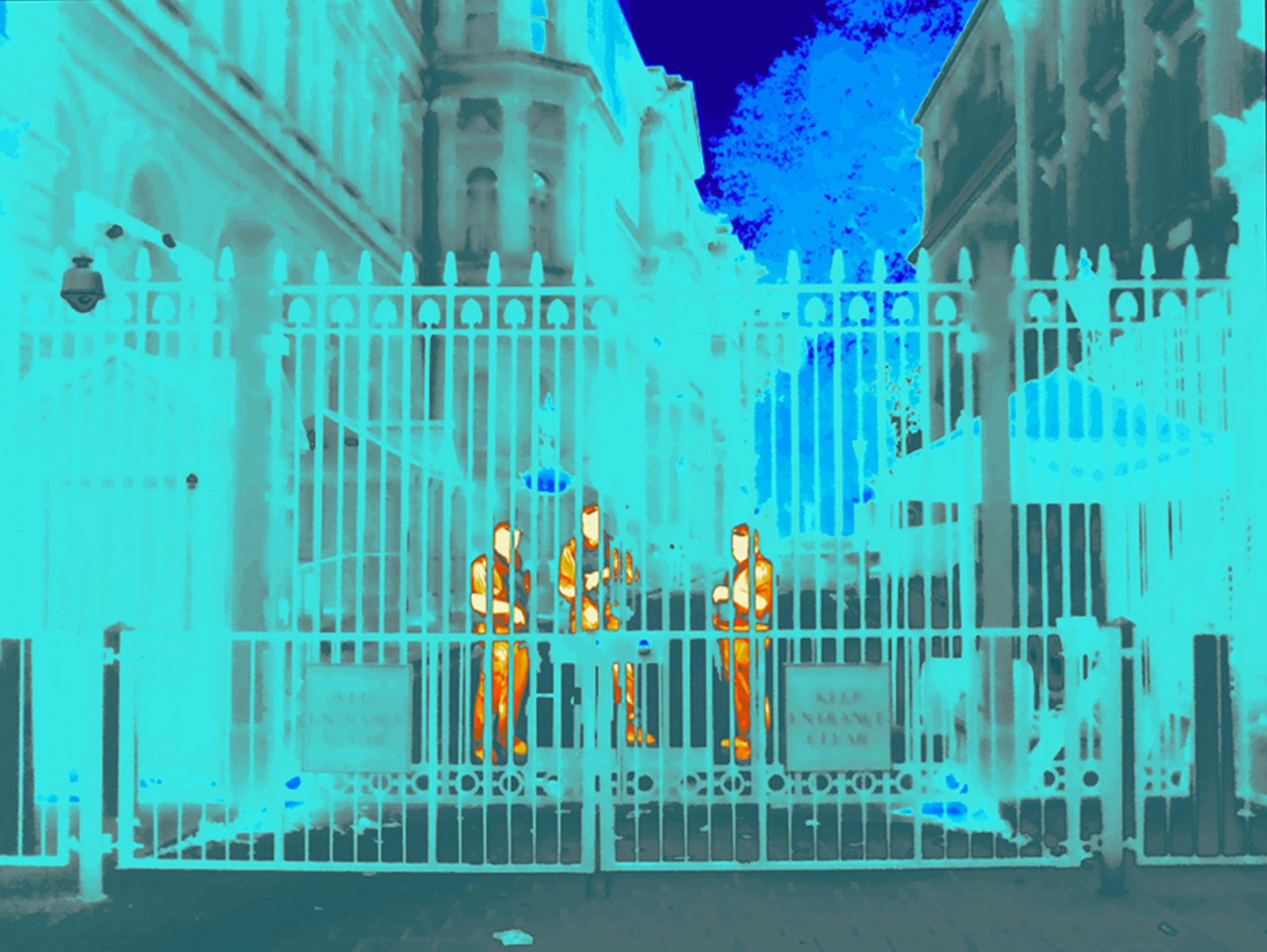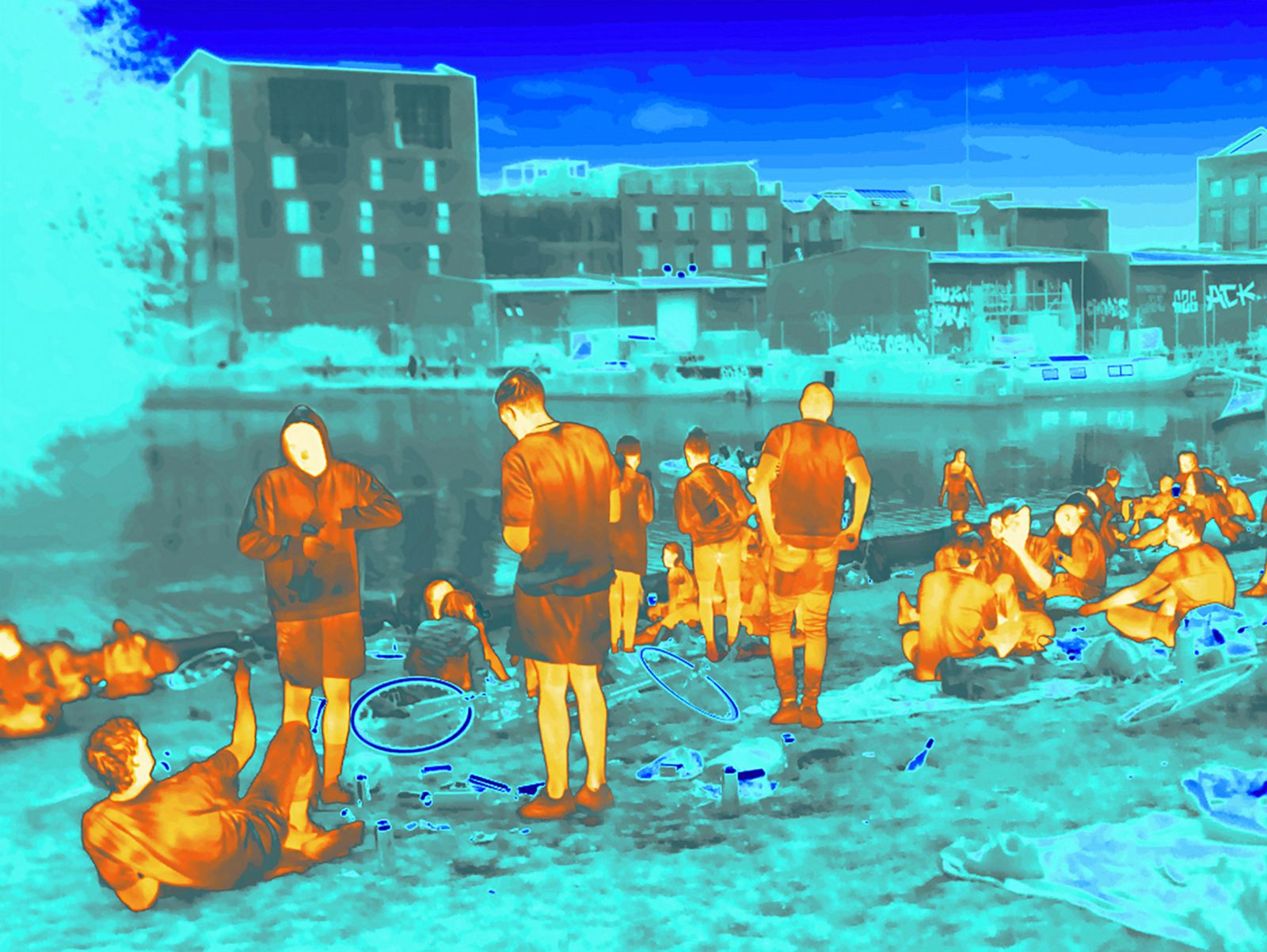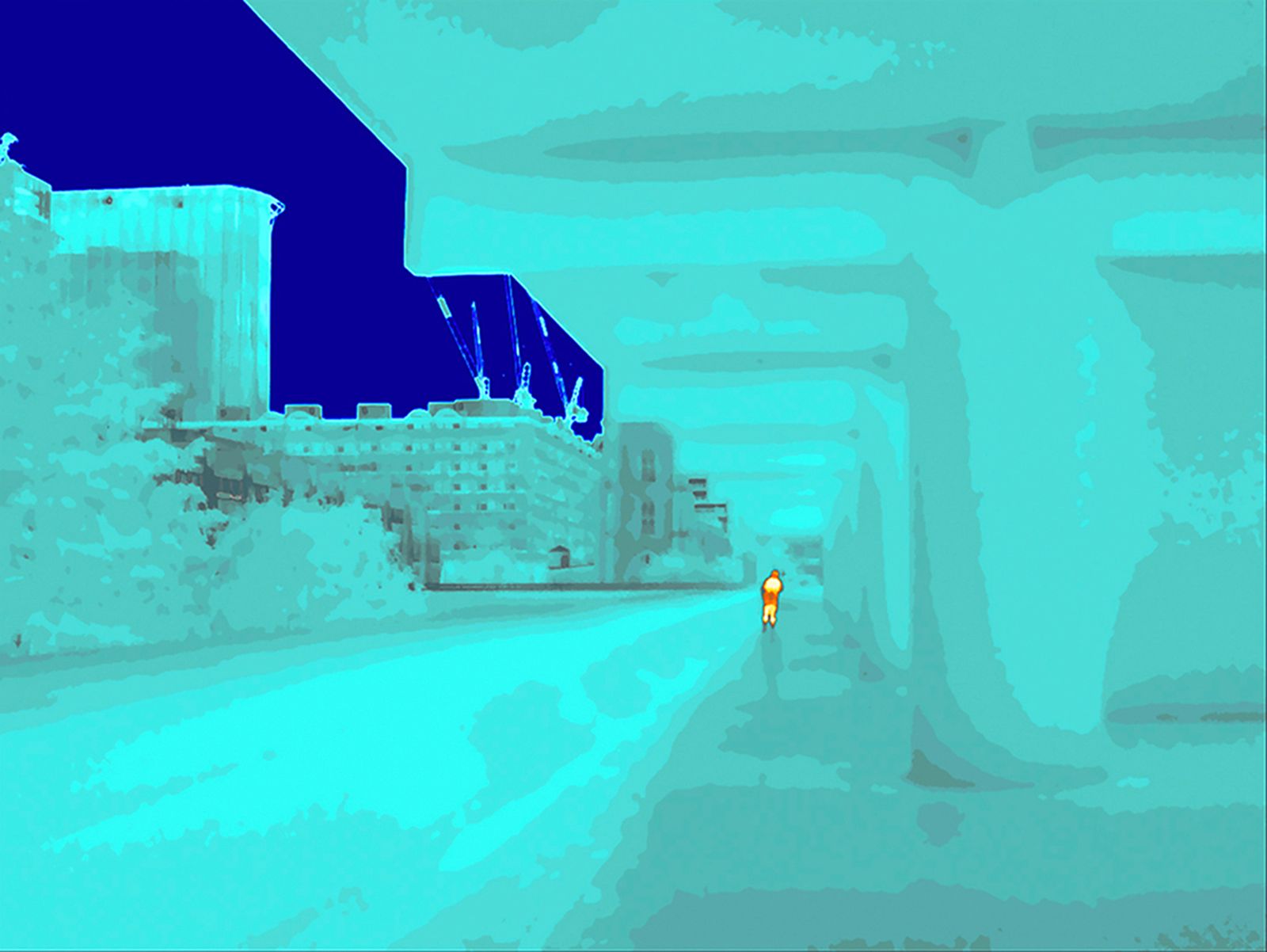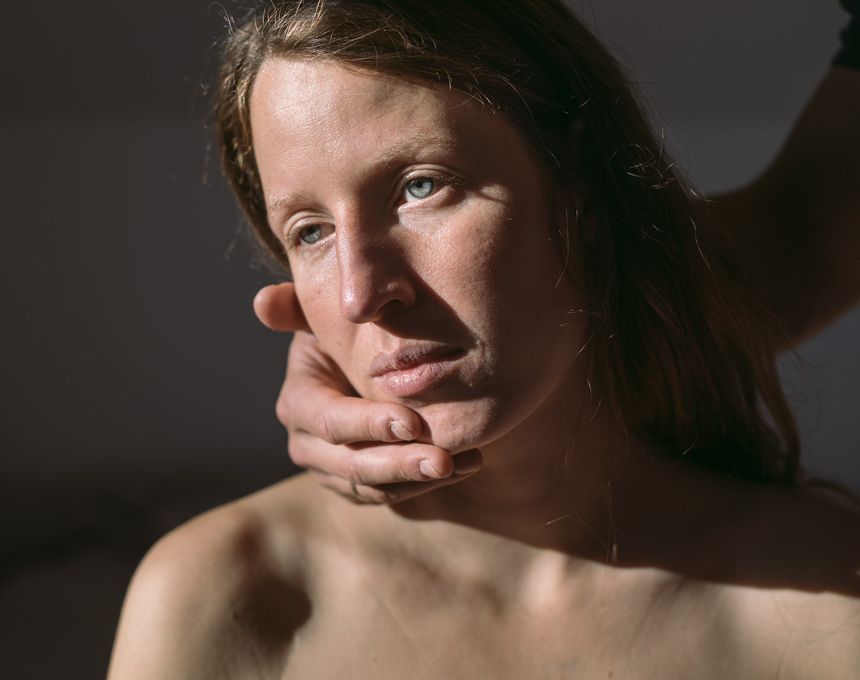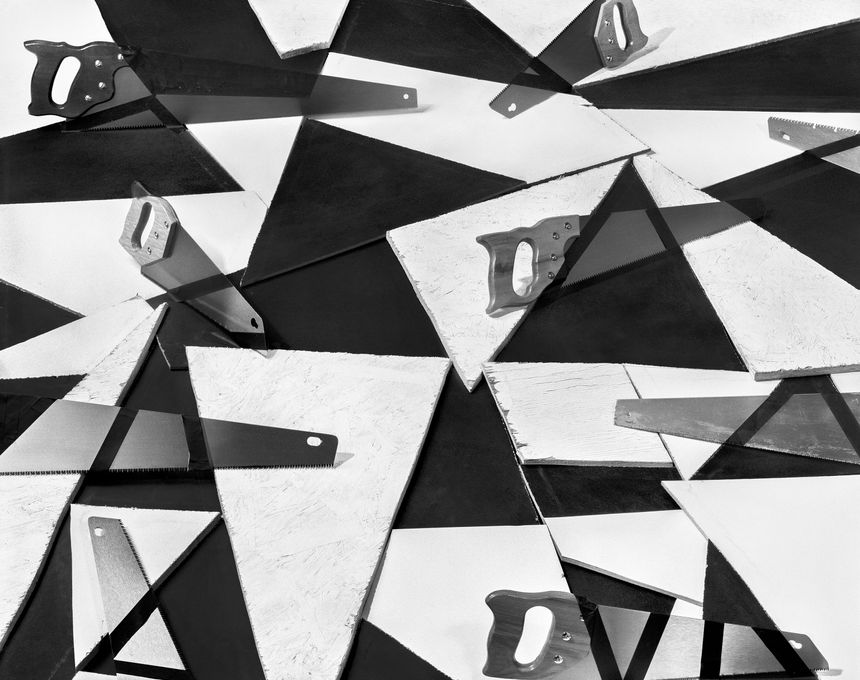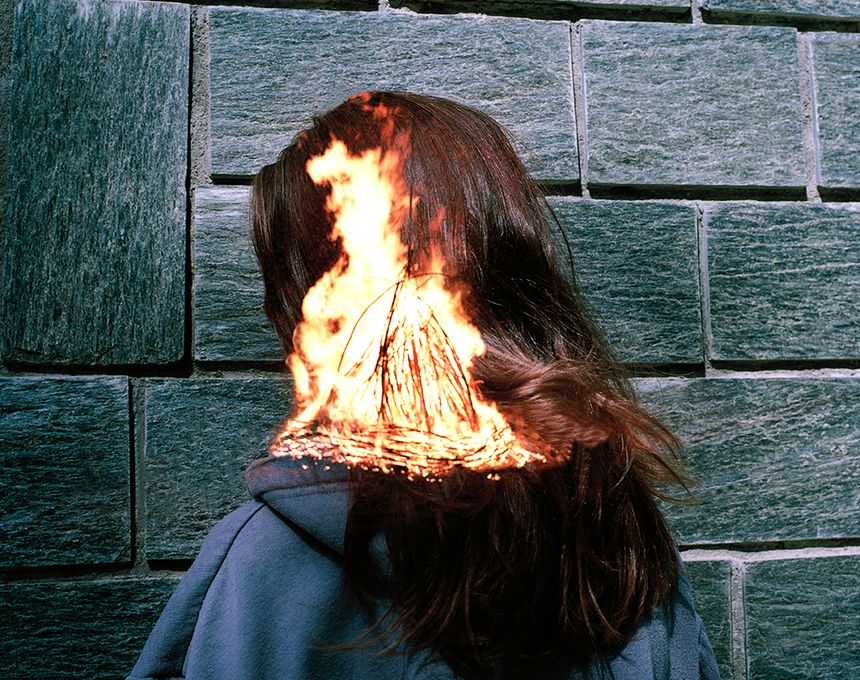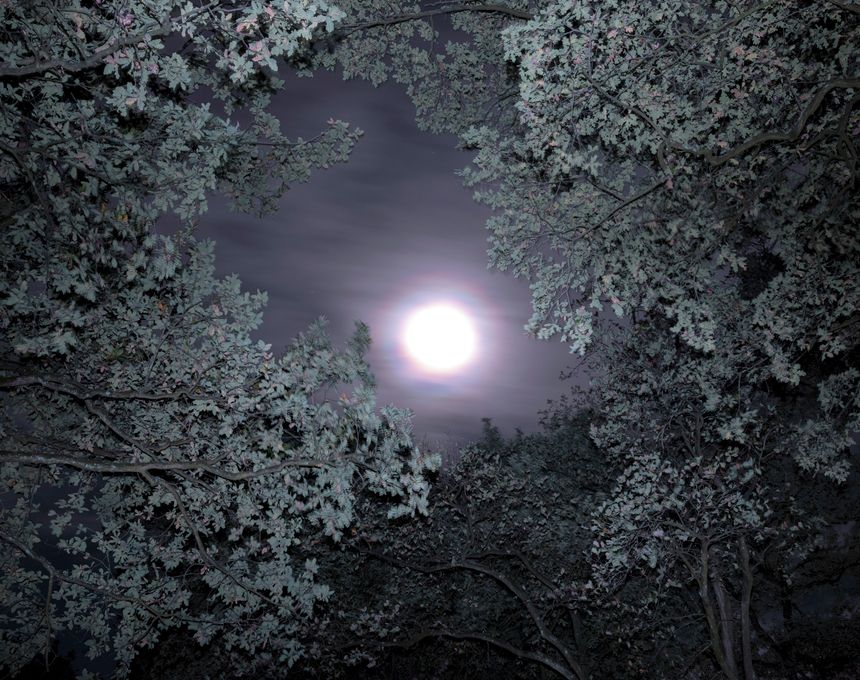R Number
-
Dates2020 - Ongoing
-
Author
With the Covid-19 pandemic we find ourselves unexpectedly living in an age where body temperature has assumed a new set of implications: we’re all potential carriers and spreaders of the virus. The world as we’ve always known it has instead become a strange and unsettling series of lockdowns, restrictions and new routines involuntarily placed on our everyday lives. The implementation of technology and science to find manageable ways to control, and ultimately combat Covid-19, has been profound, including the increased use of thermal cameras.
My work explores the boundary between conceptualism and photojournalism (experimental photojournalism), this includes using different types of lens based technology for effective visual storytelling.
